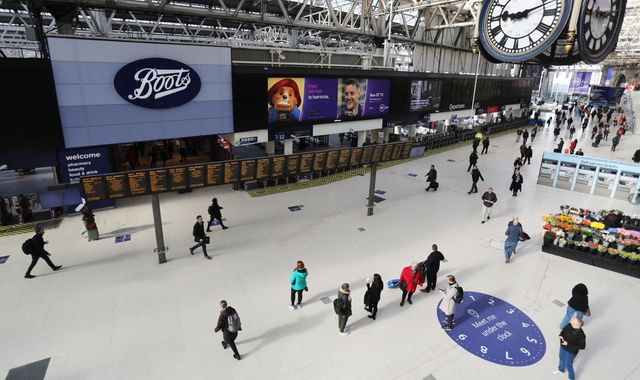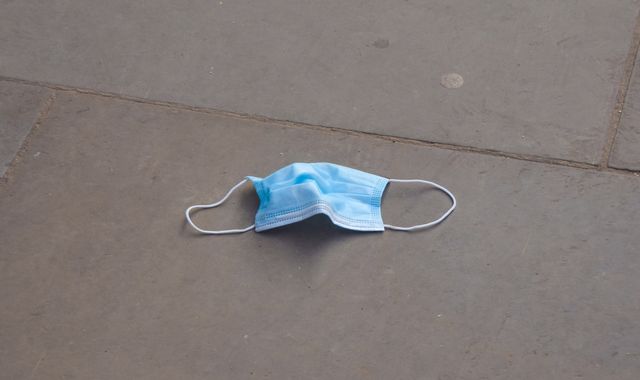Coronavirus: PM moves UK to ‘suppression’ after new analysis of COVID-19 death rate
Written by News on 17/03/2020
The government ramped up measures against the coronavirus epidemic following new predictions that the UK could otherwise have seen 250,000 deaths.


A new document published by the COVID-19 team at London’s Imperial College – which is advising the government on its coronavirus response – warns the current public health threat is the “most serious” from a respiratory virus since the Spanish Flu in 1918.
They advised the UK adopts a strategy of “epidemic suppression” – for a period of potentially 18 months or more – rather than “mitigation”.
Modelling of the “most effective” mitigation strategy examined had revealed that NHS capacities could be exceeded by at least eightfold – and about 250,000 people could die.
The Imperial team described the suppression of the coronavirus outbreak as “the only viable strategy at the current time” – even if the “social and economic effects of the measures which are needed to achieve this policy goal will be profound”.
They said: “Many countries have adopted such measures already, but even those countries at an earlier stage of their epidemic [such as the UK] will need to do so imminently.”
On Monday, Prime Minister Boris Johnson announced a significant escalation of UK measures in response to coronavirus, including advising everyone in the country to avoid pubs, clubs, restaurants and theatres and to only make essential journeys.
What is the latest coronavirus advice?
- If you live alone and have a high temperature or a new and continuous cough, you should self-isolate for seven days
- If you live in a household with others and have a high temperature or a new and continuous cough, both yourself and all others in your household should stay isolated together for 14 days
- Everyone, including if you are not displaying symptoms yourself and live in a household where no one is displaying symptoms, should stop all unnecessary contact with others and all unnecessary travel
- You should work from home where possible and avoid venues such as pubs, clubs, theatres and restaurants
- Pay particular attention to the advice if you are over 70, pregnant, have underlying health problems or live in London
- Don’t call the NHS 111 helpline if you have mild or moderate illness and instead seek advice online. But do call if your illness becomes more severe.
Sky News understands the government shifted to tougher measures on Monday partly as a result of the document produced by the team at Imperial.
The Imperial team described “mitigation” as focusing on “slowing but not necessarily stopping epidemic spread” to reduce NHS demand at the peak of an outbreak.
By contrast, “suppression” aims to “reverse epidemic growth, reducing case numbers to low levels and maintaining that situation indefinitely”.
Suppression measures would require social distancing by the “entire population” with “home isolation of cases and household quarantine of their family members” as well as possible school closures, according to the document.
Such measures will need to be maintained until a COVID-19 vaccine becomes available – a period of potentially 18 months or more, the team said.
They added: “For suppression, early action is important, and interventions need to be in place well before healthcare capacity is overwhelmed.”
However, the team warned it is “not at all certain that suppression will succeed long term” as “no public health intervention with such disruptive effects on society has been previously attempted for such a long duration of time”.
The document added: “How populations and societies will respond remains unclear.”
Having based their findings on health service demand levels in China, Italy and the UK, the Imperial team only reached their conclusions “in the last few days”.
In their examination of the “most effective mitigation strategy”, they concluded: “The surge limits for both general ward and ICU [intensive care unit] beds would be exceeded by at least eightfold under the more optimistic scenario for critical care requirements that we examined.
“In addition, even if all patients were able to be treated, we predict there would still be in the order of 250,000 deaths in GB, and 1.1 to 1.2 million in the US.”
A government spokesperson said: “This is a very fast-moving situation.
“In order to give the most robust scientific advice SAGE [the Scientific Advisory Group for Emergencies] draws upon and considers a range of evidence and views to reach its recommendations.
“Part of this evidence includes the latest modelling data from a number of experts.
“All SAGE recommendations are in line with the best current evidence. We will be publishing further evidence shortly.”
Chancellor Rishi Sunak will be present at a news briefing on Tuesday, with the Treasury expected to announce a “very significant” package of measures to help businesses deal with the coronanvirus crisis.
The number of UK coronavirus cases currently stands at 1,543, with 55 deaths.
Sky News will broadcast a special programme at 6pm, with experts answering your questions #AskSkyNews at 12.30pm
(c) Sky News 2020: Coronavirus: PM moves UK to ‘suppression’ after new analysis of COVID-19 death rate






